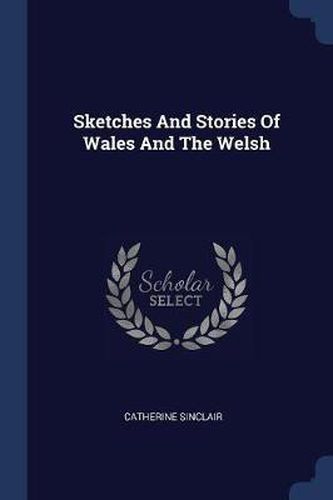Readings Newsletter
Become a Readings Member to make your shopping experience even easier.
Sign in or sign up for free!
You’re not far away from qualifying for FREE standard shipping within Australia
You’ve qualified for FREE standard shipping within Australia
The cart is loading…






This historic book may have numerous typos and missing text. Purchasers can download a free scanned copy of the original book (without typos) from the publisher. Not indexed. Not illustrated. 1860 Excerpt: …The harp here is a tolerable substitute for the bagpipe, and it is remarkable that the Irish have an inferior imitation of both harp and bagpipe, while the English can boast of no national instrument whatever; nor have they any national music, while the Welsh, Scotch, and Irish each excel in a style of harmony, as peculiar to themselves as their accent in speaking. A few airs perhaps coeval with the days of Ossian, are not quite identified to either country, such as Gramachree Molly, and Robin Adair, which occasion a vehement feud between the bards of these different nations; though it would be difficult to ascertain who first lighted the candle, when each claims the honor of having illuminated the rest. When George IV. visited Scotland, having one day, in a fit of royal courage, actually tasted a haggis, his Majesty wished to say something polite to a Scotch laird, and mentioned that he had dined lately on an excellent dish, ‘a boiled bagpipe!’ rather light diet certainly–as in that case he must have lived upon air. In a violent dispute some years ago upon the subject of national tunes, a Highland piper, who thought himself triumphant, blew such a blast of music as had not been heard for ages; upon which his enraged opponent seized a carving-knife, and stabbed the bag of the pipes, so that they could be played no more. The harp, however, is not subject to vicissitudes like these, having more strings to its bow, though never likely to make as much noise in the world, as the loud pibroch swelling on the gale.‘ CHAPTER XIV. 'Gwryndcb. y Llandrygynth wydfrnzigg brolcb, Slmnwaer cwrwyntddmawr dywrcoed rwrclch.’ Welsh Bard, vol. xix. p. 654, My Dear Cousin–Gray the poet maintained that if any individual would write down every day, all he or she had seen and he…
$9.00 standard shipping within Australia
FREE standard shipping within Australia for orders over $100.00
Express & International shipping calculated at checkout
Stock availability can be subject to change without notice. We recommend calling the shop or contacting our online team to check availability of low stock items. Please see our Shopping Online page for more details.
This historic book may have numerous typos and missing text. Purchasers can download a free scanned copy of the original book (without typos) from the publisher. Not indexed. Not illustrated. 1860 Excerpt: …The harp here is a tolerable substitute for the bagpipe, and it is remarkable that the Irish have an inferior imitation of both harp and bagpipe, while the English can boast of no national instrument whatever; nor have they any national music, while the Welsh, Scotch, and Irish each excel in a style of harmony, as peculiar to themselves as their accent in speaking. A few airs perhaps coeval with the days of Ossian, are not quite identified to either country, such as Gramachree Molly, and Robin Adair, which occasion a vehement feud between the bards of these different nations; though it would be difficult to ascertain who first lighted the candle, when each claims the honor of having illuminated the rest. When George IV. visited Scotland, having one day, in a fit of royal courage, actually tasted a haggis, his Majesty wished to say something polite to a Scotch laird, and mentioned that he had dined lately on an excellent dish, ‘a boiled bagpipe!’ rather light diet certainly–as in that case he must have lived upon air. In a violent dispute some years ago upon the subject of national tunes, a Highland piper, who thought himself triumphant, blew such a blast of music as had not been heard for ages; upon which his enraged opponent seized a carving-knife, and stabbed the bag of the pipes, so that they could be played no more. The harp, however, is not subject to vicissitudes like these, having more strings to its bow, though never likely to make as much noise in the world, as the loud pibroch swelling on the gale.‘ CHAPTER XIV. 'Gwryndcb. y Llandrygynth wydfrnzigg brolcb, Slmnwaer cwrwyntddmawr dywrcoed rwrclch.’ Welsh Bard, vol. xix. p. 654, My Dear Cousin–Gray the poet maintained that if any individual would write down every day, all he or she had seen and he…